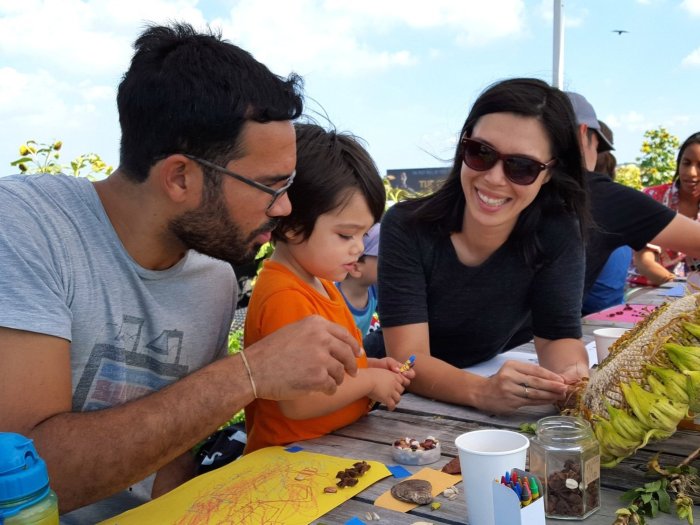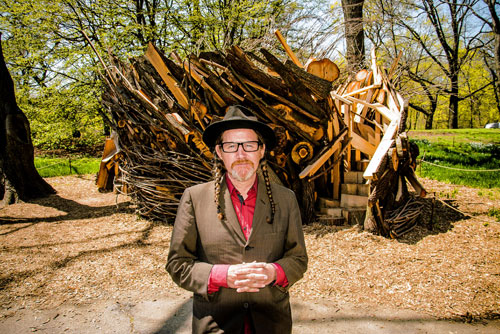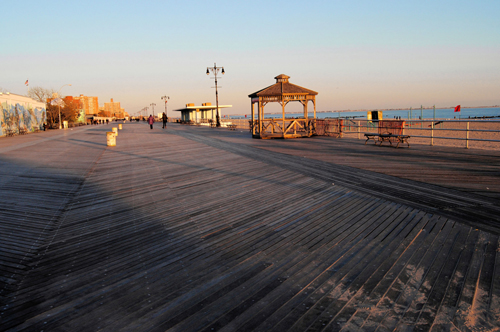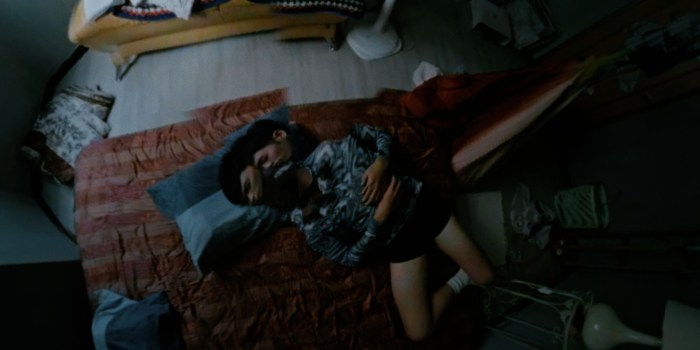Former New York City Parks Department Commissioner Adrian Benepe will now head the Brooklyn Botanic Garden, according to officials, who hailed the greenspace guru as the perfect candidate to lead the beloved garden through a challenging financial landscape brought on by the ongoing coronavirus pandemic.
Benepe brings four decades of work in the world of parks and gardens — including heading the Parks Department from 2003 to 2012 under Mayor Michael Bloomberg, and most recently as a senior vice president at the Trust for Public Land.
Benepe says he looks forward to returning to an on-the-ground role at a local institution after working in the national sphere.
“I think what I’m most excited about is literally getting my feet back on the ground of a really important cultural and botanic institution in New York City and being in contact with the ground literally — but also with people and plants,” he told Brooklyn Paper. “I’ve been working in the world of ideas and advocacy, with some park creation, but I used to have a very close connection to people every day.”
Benepe’s tenure, which begins in early October, comes as the garden — along with almost every other cultural institution in New York City — is facing an unprecedented revenue shortfall due to the coronavirus pandemic, which forced the greenspace to shutter for nearly six months and put a stop to all in-person fundraising activities.
“It was kind of a triple whammy of when these institutions were closed of losing the revenue, there was a time particularly early on when financial issues across the country were making traditional sort of funders close their wallets for a little while, and then there is a cut in the city support of about 14 percent and that’s likely to continue into the next budget,” Benepe said.
Unlike indoor cultural institutions like concert halls and museums, the Brooklyn Botanic Garden is mostly outdoors, where the chances of contracting coronavirus are slim, which has made its reopening much simpler. Since opening its doors in July, the greenspace has welcomed over 45,000 visitors — roughly 75 percent of whom are Brooklynites, according to the garden.
During the shutdown, garden administrative staff continued their fundraising efforts behind their computer screens, while essential staff continued to clock in to tend to the greenspace’s grounds and maintain its living collection.
“I feel really fortunate to be able to come in and have such extraordinary colleagues,” he said. “The financial challenges are real, the operational challenges are real, but I’m very confident in the team’s ability to handle that.”
The garden has been grappling with another potential threat to its existence long before the coronavirus was on anyone’s radar, in the form of the proposed mega-development one block away from the horticultural museum at 960 Franklin Ave.
The garden has been vocal in its opposition to the 39-story project, which would bring 1,578 apartments to the neighborhood, half of which would be offered at “below market rate.” Greenspace stewards have testified that the shadows cast by the towers would be “devastating” to the gardens grow houses — findings backed up by the city’s Parks Department.
Benepe says he shares the garden’s belief that the towers would be harmful to the greenspace.
“Plants won’t grow without sunlight,” he said. “Once the sunlight is gone, it’s gone.”
The former Parks commissioner said he doesn’t see how anything close to the proposed size could be erected on the site without the garden being damaged — and with the developer, Ian Bruce Eichner, still being able to get his money’s worth.
“It would have to be significantly shorter and I’m just not sure how that works economically,” he said.
Along with balancing the budget, the greenspace guru says he wants to prioritize increasing accessibility to the garden to those without the means to pay for admission. Currently, under the timed ticket system, 20 percent of the slots offered for every time period can be given away for free. While physical access is one part of the equation, Benepe says it’s also important that people of all backgrounds feel the garden is a welcoming place for them.
“It’s an important concept that proximity doesn’t mean access, and access doesn’t mean inclusion,” he said. “Do people feel like they belong?”























